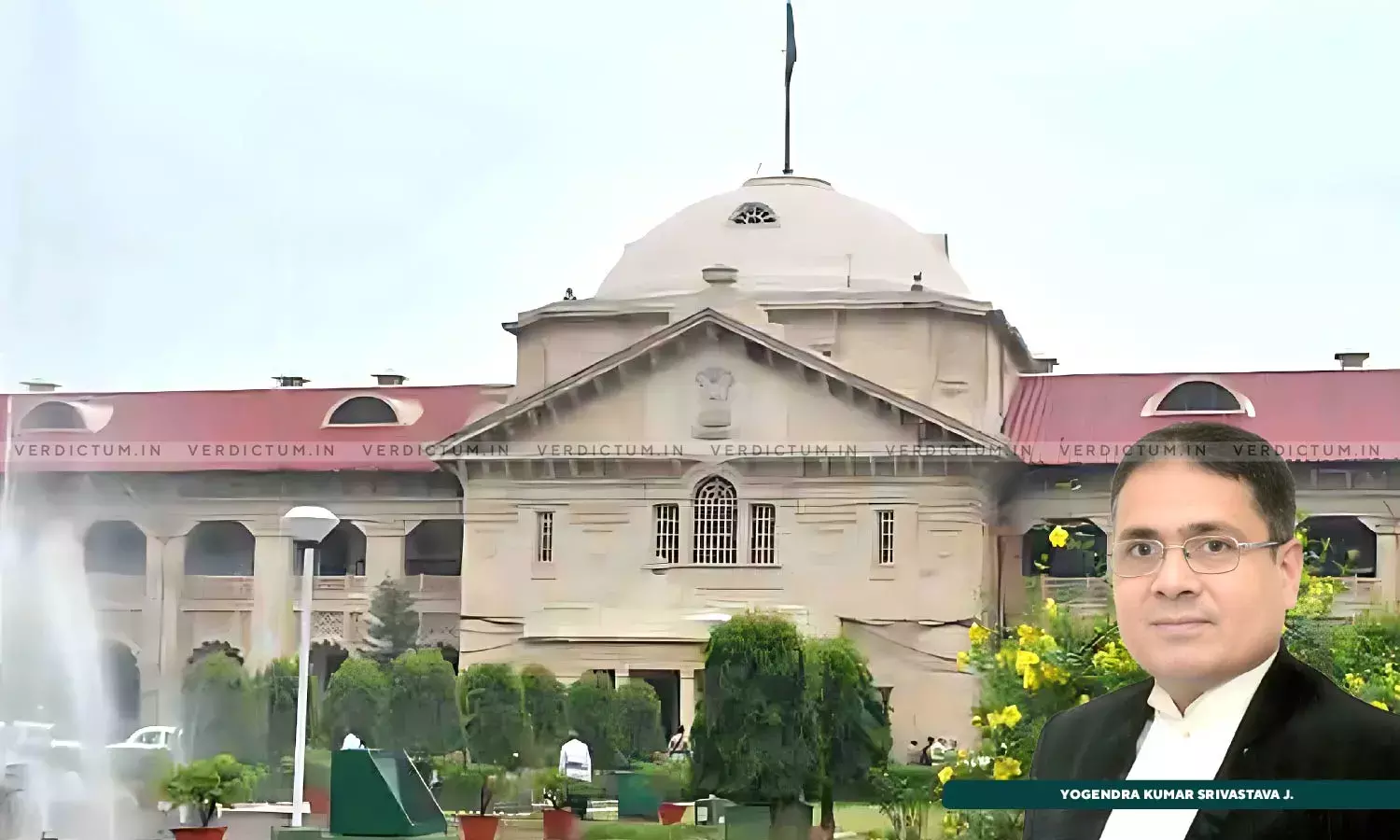Habeas Corpus| Detention Of Minor By A Person Who Is Not Entitled To His Legal Custody Should Be Treated As Equivalent To Illegal Detention: Allahabad HC
The Allahabad High Court has observed that while considering habeas corpus writ petitions, the detention of a minor by a person who is not entitled to his legal custody would have to be treated as equivalent to illegal detention.
The Bench of Justice Yogendra Kumar Srivastava observed, “In a petition seeking issuance of a writ of habeas corpus relating to the custody of a minor child, the principle duty of the Court would be to ascertain whether the custody of the child is unlawful or illegal and whether the welfare of the child requires that the present custody should be changed and the child be handed over to the care and custody of some other person. In doing so, the paramount consideration would undoubtedly be the welfare of the child and the role of the High Court in examining such cases would have to be on the touchstone of principles of parens patriae jurisdiction.”
Advocate Akhilesh Kumar Tiwari appeared for the Petitioner whereas AGA Harshita Rani appeared for the Respondent.
A habeas corpus writ petition was filed alleging that the mother of a child was ousted from her matrimonial home by the child’s father and the child was detained by the father. Later, the father went out of the country and the child was illegally detained by the paternal grandmother.
The Court said, “A writ of habeas corpus is prerogative process for securing the liberty of the subject by affording effective means of immediate release from an illegal or improper detention. The writ also extends its influence to restore the custody of a minor to his guardian when wrongfully deprived of it. The detention of a minor by a person who is not entitled to his legal custody would have to be treated as equivalent to illegal detention for the purpose of granting a writ directing custody of the minor child.”
As regards Section 17 of the Guardians and Wards Act, 1890(‘GWA’), the Court noted that the relates to matters to be considered by the court in appointing a guardian, and in terms thereof it is provided that the court while deciding the question of guardianship of a minor, shall, as far as possible, do so consistently with the law to which the minor is subject, keeping in view the welfare of a minor.
Thus, the provisions of the personal law are to be applied consistently with the provisions of the GWA, and insofar as the question of custody is concerned, the rights of parties in the present case, are to be governed by the personal law, it said.
The Court also held that in child custody matters, the remedy ordinarily lies under the statutory law, or the personal law, as applicable in the facts of the case; however, in cases which justify the exercise of the extraordinary discretionary jurisdiction under Article 226, a writ of habeas corpus would be issued where it is demonstrated that the detention of minor child, is illegal or without any authority of law.
The Court concluded, “It has, also, not been disputed by counsel for the parties that in the entirety of the facts and circumstances of the case, it would be in the paramount interest of the petitioner no. 1 (corpus) that the interim arrangement, as per terms of the previous order dated 16.04.2024, permitting the petitioner corpus to go along with the petitioner no. 2, her biological mother, be continued.”
Accordingly, the Court disposed of the Petition.
Cause Title: Ayra Khan and Anr. v. State of U.P. and Ors. (Neutral Citation:2024:AHC:97133)
Appearances:
Petitioner: Advocate Akhilesh Kumar Tiwari
Respondent: AGA Harshita Rani




